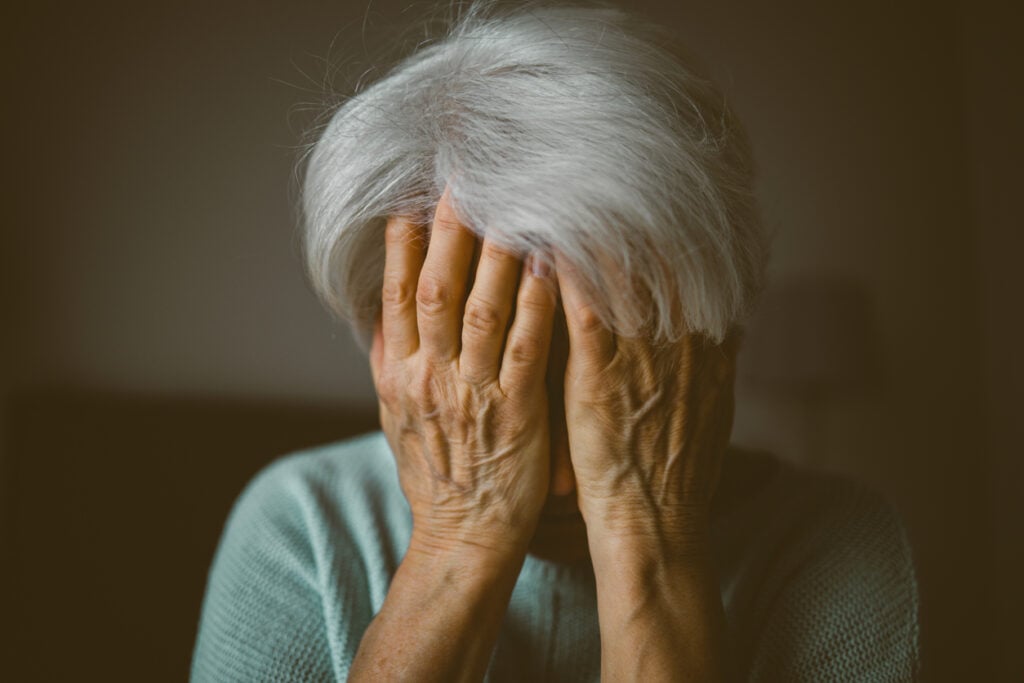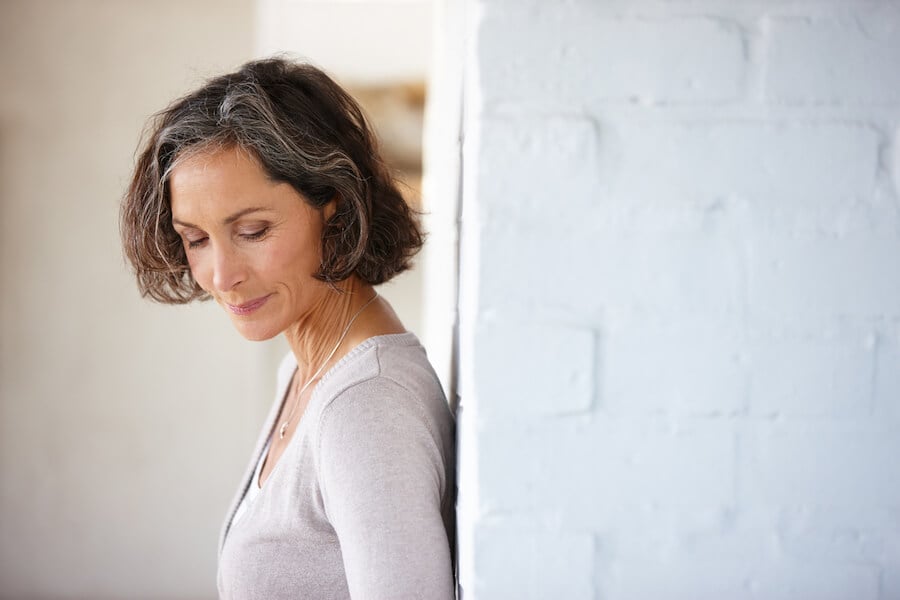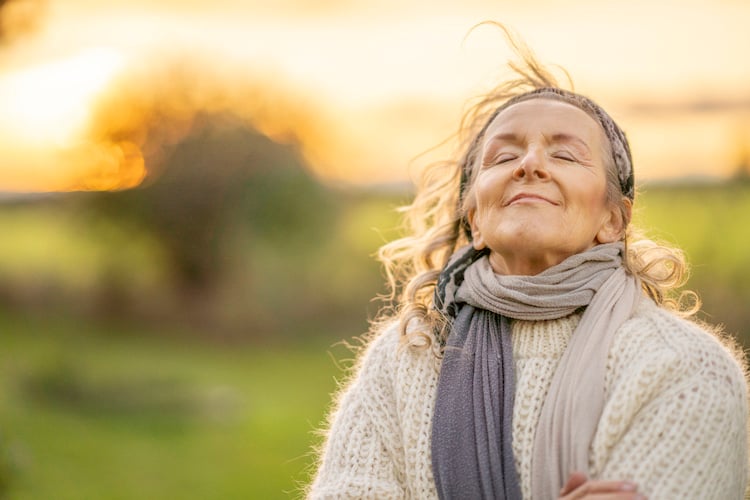Uncover the hidden struggles that many women over 55 face, and learn how to transform insecurities into strength and empowerment.

As women enter their mid-50s and beyond, they begin to encounter a range of insecurities that are often deeply personal and quietly carried. These challenges can emerge from physical changes, evolving relationships, career transitions, or broader societal expectations that seem to fade their relevance. What makes these struggles more complex is how often they are minimized or misunderstood—even by those closest to them. Many women hesitate to voice these fears, internalizing them instead, which can lead to a decline in self-esteem, increased anxiety, and a sense of isolation.
But acknowledging these emotional hurdles is the first and most powerful step toward reclaiming self-worth and inner peace. With greater awareness, compassion, and intentional action, women can learn to not only cope with these insecurities but also transform them into sources of strength. Rather than seeing this stage of life as one of decline, it becomes an opportunity for renewal, rediscovery, and deep personal empowerment. These 12 insecurities reveal the emotional terrain many women over 55 must navigate—and how each can be approached with grace, courage, and resilience.
1. Body Image Struggles

For many women over 55, body image becomes a daily battle. Years of social conditioning have taught us that youth equals beauty, and the natural aging process often feels like a betrayal of that ideal. Wrinkles, sagging skin, and changes in weight can trigger self-criticism, making us feel invisible in a world obsessed with appearances, as mentioned by Andrea Pflaumer at Sixty & Me. Dressing rooms become emotional minefields, and mirrors may reflect back not just a physical change, but a perceived loss of identity and desirability.
But there’s a quiet strength in challenging this narrative. By shifting our focus from appearance to appreciation—celebrating the body for its resilience and what it has carried us through—we can create a healthier relationship with ourselves. Nourishing the body through movement, rest, and mindful eating fosters both wellness and confidence. And surrounding ourselves with affirming images and communities that celebrate all ages helps redefine beauty as something expansive and personal, rather than narrow and fleeting.
2. Fear of Aging

Aging brings with it a host of fears—losing relevance, losing independence, and facing the unknowns of health and mortality, as reported by experts at Senior Consulting Advisors. These fears aren’t superficial; they tap into the deep awareness that time feels more finite. The media often reinforces the notion that growing older is something to resist, portraying youth as the pinnacle of value and overlooking the power of life experience. As a result, many women feel pressured to stay young-looking rather than simply being.
But aging doesn’t have to be something to dread. It can also be seen as a privilege—a chance to step into authenticity without apology. With age comes wisdom, clarity, and freedom from societal expectations that once constrained us. Embracing aging is about focusing on legacy, meaningful connections, and creating joy on our terms. When we start to see each year as a chapter filled with its own richness, the fear begins to subside and in its place grows a deep appreciation for the life we’ve lived and the life still ahead.
3. Career Transitions

Leaving the workforce—or being pushed out of it—can stir up painful questions about worth and identity. For women who’ve poured themselves into their careers, retirement or job loss can feel like a loss of purpose, as stated by Aliya Hamid Rao at Harvard Business Review. Even for those who welcome the shift, there’s often a nagging worry about how to remain useful, productive, or respected in a world that equates worth with output. The corporate world isn’t always kind to older women, and ageism adds another layer to the already complex emotions.
Yet this period can also mark the beginning of something deeply fulfilling. With decades of experience, women over 55 are well-positioned to mentor, consult, volunteer, or pivot entirely to passion projects they never had time for. It’s a time to reconnect with long-forgotten dreams and embrace new ones. Career transitions aren’t endings—they’re opportunities to redefine success and build a legacy that reflects our true values, free from the constraints of others’ expectations.
4. Relationship Doubts

As we age, relationships shift. Some deepen while others fall away. Long-term marriages may hit new phases that feel uncertain or lonely. Dating after 55 can bring its own emotional hurdles—fears of rejection, questions about desirability, or difficulty trusting again. Even friendships may grow distant as life paths diverge. These changes can shake our sense of emotional security and leave us feeling unmoored or unseen.
But relationship doubts also invite us to strengthen the relationship we have with ourselves. Building emotional resilience means becoming clear on what we truly need and deserve from others. It’s also a chance to cultivate more meaningful, intentional connections—ones rooted in mutual respect and shared growth. Vulnerability becomes a bridge, not a weakness. And when we open ourselves up to new experiences and people with curiosity rather than fear, we often discover unexpected joy and companionship.
5. Financial Worries

Many women over 55 carry the weight of financial worry, especially if they’ve faced divorce, widowhood, career setbacks, or have been caregivers without compensation. Retirement savings may feel insufficient, and there’s often anxiety about affording healthcare or maintaining independence. For some, there’s the added emotional burden of having been dependent on a partner financially and now needing to navigate unfamiliar financial terrain.
However, taking proactive steps—no matter how small—can be empowering. Creating a clear picture of your finances, seeking guidance, and making informed decisions about spending, saving, and investing helps reduce fear and build confidence. There are also abundant resources, workshops, and supportive communities focused on helping women manage money in their later years. Financial wellness isn’t about wealth—it’s about feeling in control and at peace with your financial life.
6. Health Anxiety

It’s natural for health to become a growing concern as we age. Every new ache or symptom can trigger fear, and the possibility of facing chronic illness or losing independence can feel overwhelming. The pressure to stay “youthfully fit” doesn’t help—especially when medical issues are often treated as failings rather than natural developments. These anxieties can quietly erode our sense of security and joy.
But taking ownership of our health can restore that sense of control. Preventative care, movement suited to our bodies, and nutritious food become acts of self-love rather than obligations. Learning about our health empowers us to make informed choices, and building relationships with trusted healthcare providers fosters confidence. It’s not about avoiding aging—it’s about aging with intention, mindfulness, and dignity.
7. Social Isolation

Life changes such as retirement, relocation, or the loss of a partner or close friends can cause a painful sense of disconnection. Women over 55 may find their social circles shrinking, leaving them feeling forgotten or lonely. This isolation isn’t just emotional—it can impact mental and physical health in profound ways. Being alone too often can make the world feel less inviting and more intimidating.
But loneliness doesn’t have to be permanent. Making the effort to reach out, join a group, take a class, or engage in community events can spark new friendships and a renewed sense of belonging. Online spaces can also be powerful tools for connection when used intentionally. Rebuilding a social life requires courage, but it’s also deeply rewarding. Human connection nourishes the soul, and it’s never too late to find your people.
8. Parenting Pressures

Parenting doesn’t end when children grow up—it just changes form. Women over 55 often wrestle with worries about their adult children’s choices or feel unsure about their role in their children’s or grandchildren’s lives. There may be tension, distance, or even estrangement, which can be incredibly painful. And in an age of social comparison, it’s easy to question whether you’ve done enough or done it “right.”
But perfection was never the goal—connection is. Being a supportive presence, offering love without strings, and respecting your children’s autonomy allows relationships to grow in healthier, more honest ways. Releasing the pressure to control outcomes frees both you and your children to show up more authentically. You’re still a guiding light in their lives, and your unconditional love carries more weight than you may realize.
9. Self-Worth Challenges

In a society that often values productivity, youth, and external achievements, it’s easy for older women to question their value. Retirement, physical changes, or simply being overlooked can make you feel invisible. If your self-worth was once tied to your role as a worker, mother, or partner, the absence of those roles can create a sense of emotional void.
But self-worth doesn’t vanish—it just needs to be re-rooted. Reflecting on your accomplishments, both public and private, helps rebuild a sense of pride. Trying new things, volunteering, learning, or creating can reignite purpose. When you begin to see yourself as inherently worthy—not because of what you do, but because of who you are—confidence blooms from within, and you become your own greatest advocate.
10. Fear of Rejection

Whether it’s starting a new friendship, entering a dating relationship, or stepping into a new environment, the fear of being dismissed or excluded can be especially sharp in later life. Past rejections can linger, making it harder to open up again. For women who already feel unseen or undervalued, the thought of putting themselves out there can feel risky.
But rejection is never a reflection of your entire worth—it’s merely a moment. The more you practice self-validation, the less you need external affirmation to feel good. Reframing rejection as redirection helps you stay resilient. And when you start embracing opportunities with curiosity instead of fear, you often discover just how magnetic you really are—especially to those who see the real you.
11. Fashion and Style Concerns

As bodies change and style trends evolve, many women begin to feel uncertain about how to dress in ways that still feel expressive and true to them. The fashion industry hasn’t always been kind to older women, and it’s easy to feel like you no longer “fit in”—literally or figuratively. This insecurity can cause frustration and even embarrassment when shopping or getting dressed.
Yet fashion can still be fun, empowering, and deeply personal. Rediscovering what feels good on your body—fabrics that comfort you, colors that energize you, pieces that reflect your spirit—can transform how you move through the world. You don’t have to follow trends to be stylish. You only have to listen to yourself. Personal style after 55 isn’t about approval—it’s about authenticity.
12. Tech Anxiety

Technology moves fast, and keeping up can feel like a full-time job. Whether it’s managing digital banking, learning new apps, or staying connected with loved ones online, tech anxiety can create a barrier between older women and the world around them. It can also lead to feelings of inadequacy, frustration, and disconnection from younger generations who seem to navigate these tools effortlessly.
But you don’t have to be a tech expert to stay connected. Taking small steps, asking for help, and giving yourself time to learn make a big difference. There are also countless resources—community classes, friendly tech guides, and online tutorials—designed with beginners in mind. You deserve to be part of the conversation, and you have every right to navigate the digital world at your own pace and in your own way.
